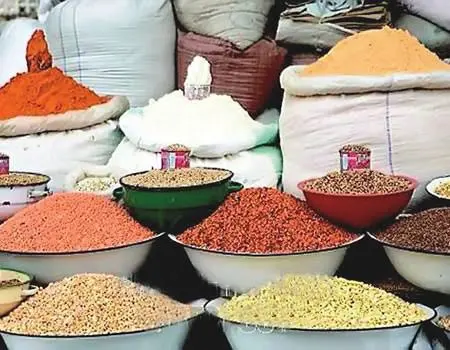BY JUDITH OBIANUA
PETTY traders in Hausa Market, Oko, Oshimili South Local Government Area, Delta State have expressed deep concerns over the continuous rise in food prices with unpalatable consequences for their businesses as they lose customers every day.
In an interview with our correspondent, yesterday, the women shared their frustrations and worries about the situation.
Mrs. Miracle Okere, a condiment dealer, lamented the instability of market prices. She explained that prices seem to increase daily, making it difficult for both sellers and producers to cope.
“The price of food is not stable in the market. What you buy today might cost more tomorrow. It keeps increasing every day,” she said, adding “The market is not what it used to be. People are not buying as much as before because money is scarce. Despite this, prices remain high.”
Mrs. Okere highlighted some of the current market prices to illustrate her point. She noted that five litres of Kings Groundnut oil, which previously sold for ₦13,000, now costs ₦25,000, while 35 litres of the same oil has risen to ₦106,000.
“Rice is another issue,” she added. “A 50kg bag of rice now costs over ₦100,000. I wonder how we will celebrate Christmas this year. God help us. Consumers are equally disheartened by the situation.
In a similar event, Mrs Faith Solomon, a regular shopper, described the market as discouraging. “Things are so expensive. You go to the market with money but can
hardly buy anything reasonable,” she said. Mrs Solomon attributed the soaring food prices to the hike in fuel prices, emphasizing that even with the new minimum wage, many Nigerians are still struggling.
According to her, a 50kg bag of Mango rice now costs ₦110,000, while the Ultimatum Rice of the same size is ₦105,000. A basket of fresh tomatoes is sold for ₦80,000, and a carton of spaghetti (500g x 20 packs) costs ₦28,000.
She noted that garri once considered a staple for the poor, has become unaffordable for many.
“This is no longer sustainable. If the government does not intervene, things will get worse in 2025. I fear more Nigerians might face hunger, especially given the high rate of deaths this year,” Mrs Solomon said.
These women urged the government to address the situation urgently, starting with reducing fuel prices.
“If fuel prices are brought down, the cost of goods might also decrease. If not, many Nigerians will continue to suffer,” Mrs. Solomon concluded.


